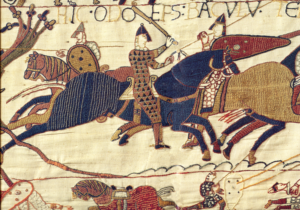Three thinkers popular with integralists (believers in a religious confessional state, typically Catholic) have advocated a not-so-new version of USA foreign policy “restraint” in a New York Times op-ed. Sohrab Ahmari, Patrick Deneen and Gladden Pappin complain that many conservatives remain wedded to the Cold War’s “violently expansionist foreign policy,” opposing “liberal imperialism in the United States —the aggressive push to impose progressive values, often joined to corporate power — while still contriving to spread the same order to the ends of the earth.”
They urge breaking with “neoconservative foreign policy” to instead “emphasize widely shared material development at home and cultural nonaggression abroad as the keys to U.S. security.” And they lament that “even at the 2021 national conservatism conference, the hawks were amply represented and pitched the same old belligerence, especially against China.” They warn of “protracted and destabilizing conflicts that would distract us from domestic reform.” They allege that conservatives are beholden to the Wilsonian dream of “making the world safe for democracy.”
Of course, they cite John Quincy Adams about slaying monsters abroad, and they divide America between opposing schools of thought, one touting an “exemplary republic” and the other demanding a “crusader nation.” They claim the crusader mindset embraces a “ruthless market ideology that puts short-term shareholder gains and the whims of big finance above the demands of the national community” and “a virulent cultural libertinism that dissolves bonds of family and tradition.” They berate conservatives who supposedly “tub-thump for NATO expansion in Europe and hawkishness elsewhere,” which actually means “the integration of evermore geographic space into the same socioeconomic order they find so oppressive at home.”
According to them, the “crusader” foreign policy “immiserated” ordinary people, “thoughtless NATO expansion bred resentment in a wounded-but-still-strong Russia,” Milton Friedman economics empowered post-Soviet oligarchs, and “shattering” Arab states kindled terror and disorder. They urge repurposing “older conservative foreign-policy values.” They want to rule out admitting Ukraine into NATO, as Putin demands, and they warn against “mindless China hawkism,” urging instead “cooperation” and “mutual respect for a civilizational equal.” They deride supposed “donor-backed Republican hawkishness” as an “obstacle to national development.” And they insist the “monsters that menace us don’t lurk abroad.”
Perhaps this last claim is the most removed from reality. There are monsters aplenty abroad, whether these advocates of restraint acknowledge them or not. China, Russia, Iran, North Korea, among others, including many non-state actors, would like to neutralize America as a world force. It sounds as though Ahmari, Pappin and Deneen don’t see that goal as threatening, and perhaps they even sympathize with its objective.
If America is, as they lament, singularly decadent, materialistic and hedonistic, then its global reach should be rebutted, before more societies are absorbed into America’s miasma of “ruthless market ideology” and “virulent cultural libertinism.” Portraying China under its current regime as a “civilizational equal” also sounds ominous. Perhaps in their eyes China’s Confucian traditionalism compensates for its police state terrors. But markets fueled by slave labor and adjudicated by apparatchiks of a totalitarian political party don’t seem morally equal to American economics.
Ahmari, Pappin and Deneen echo Old Right isolationists except that crowd generally was ardently enthusiastic about America and thought overseas squabbles undeserving of American exertions. Integralists and their fellow travelers are not enthusiastic about the American regime, built upon “liberal” democracy, individual rights and pluralism. In their loftiest dreams, America’s Protestant and Enlightenment inspired republic, premised on universal ideals about human equality, must be dismantled. Its replacement would be a less presumptuous traditional society of hierarchy and order, ideally under a confessional state in which the church mediates the big questions.
In this sense, America would more resemble Russia and China, saved from liberalism, and controlled by a central authority attuned to the organic impulses of earlier civilization. In other words, America becomes something other than America, which is a utopian fantasy.
Also utopian is the Ahmari/Pappin/Deneen vision of America escaping global conflict through restraint and withdrawal. A more authentic integralism would at least understand that geopolitics are the constant rumble of clashing civilizations and competing interests. America under a confessional state and morally redirected according to their dictates would be no less in conflict with China and Russia, among others. The conflict might even be greater. Democracies generally prefer commerce and peace over war. Theocracies and traditional societies more easily go to war over principle and honor.
Calls for American withdrawal from the world assume that America is the disruptive influence and that its abstention from international competition will safeguard its tranquility. But circumstances often dictate otherwise. Woodrow Wilson campaigned as a peace candidate. FDR pledged no American boys dispatched to foreign wars. LBJ was the alternative to a purported warmonger. George W. Bush ran on opposition to nation building. As Lincoln once noted, he did not control events, events controlled him.
Restraint amid great events on the world stage is generally wise. Patience and the passage of time, backed by watchful preparation, are usually preferable to rambunctiousness. Deterrence can be measured and not obsessive or apocalyptic. We should have no illusions about our own virtues. But neither should we discount the aggressions and malevolence of dictatorships that lack the restraints of public opinion and often need the threat of conflict to bolster their own standing and legitimacy. They can in fact be quite monstrous and far more lethal than any “ruthless market ideology.”
All nations have their tawdry internal corruptions that should preclude national sanctimony. But wise nations abjure naïveté and don’t pretend they can sustain peace and security by closing their eyes and praying for their own sanctification. Providence does not favor nations that imagine they can pursue holiness while escaping reality and responsibility.







 Sponsor a student for Christianity & National Security 2024
Sponsor a student for Christianity & National Security 2024